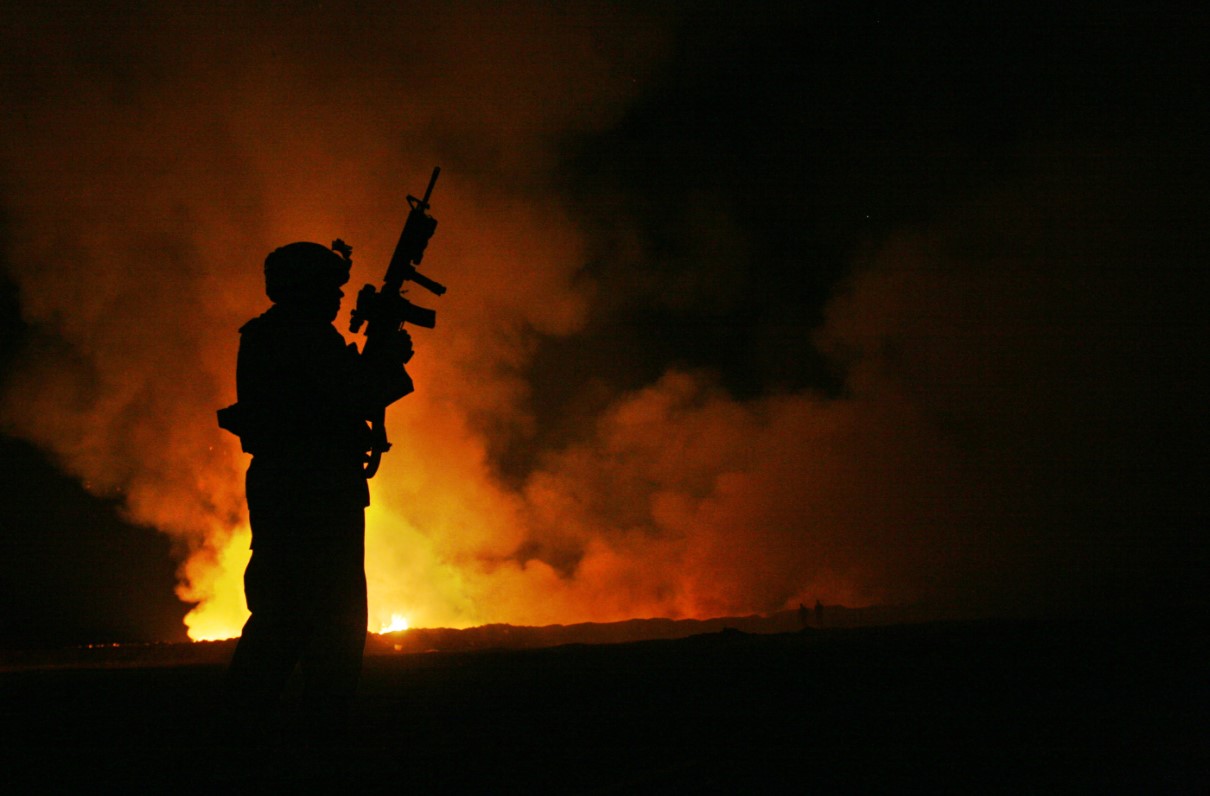A new VA program will change how the agency determines presumptive conditions related to toxic exposure in service, with the goal of fast-tracking disability claims involving such illnesses.
Instead of relying on reports every few years from the National Academies of Science, Engineering, and Medicine (NASEM), the VA has taken a more aggressive approach under Secretary Denis McDonough, combining NASEM’s material with other research and a review of VA claims data.
“We are seeking more information from veterans, more evidence from more sources, and looking to take every avenue possible to determine where a potential presumptive illness based on military service location may exist in a more expedient and holistic manner, “McDonough said in a VA press release outlining the changes.
[TAKE ACTION: Ask Your Lawmakers to Support Comprehensive Toxic Exposure Reform Legislation]
Listen to Cory Titus discuss the latest on toxic exposure on MOAA's Never Stop Serving Podcast:
The VA will run the presumptive illness pilot program from Nov. 15 to April 1, 2022. During that time, officials plan to review conditions related to burn pit exposures, such as rare cancers and other respiratory illnesses.
Presumptives in Focus
A presumptive, according to NASEM, is “a procedural device that dictates that once basic fact A is established, the existence of fact B must be assumed unless the presumed fact is rebutted.”
This process allows the VA to fulfill a veteran’s claim without the evidentiary evidence normally required. For example, by virtue of serving in Afghanistan, the VA presumes a veteran was exposed to particulate matter.
The new process already has yielded some promising results for veterans. While not formally announced at the time, it was used by the VA in August to add sinusitis, rhinitis, and asthma to the list of presumptives for veterans exposed to burn pits.
[RELATED: VA Announces 3 New Presumptive Conditions Connected to Burn Pit Exposure]
However, using the process for more complex illnesses like rare cancers will be the true test of whether it will be faster for veterans. Evidence is not able to support direct causation for many of these illnesses, a challenging concern for MOAA and many other veterans service organizations.
Most of the presumptive illnesses created over the past several years have been through association, not causation. The fog of war and scientific limitations make proving direct causation difficult, if not impossible. Amyotrophic lateral sclerosis (ALS), for example, is an illness which is positively associated with military service, yet there is no known cause. Switching to causation as the standard may risk many presumptive conditions like ALS from being established, a change which would harm many ill veterans.
[FROM MILITARY.COM: Ruling on Burn Pit Link to Cancers and a Rare Lung Disease Coming from VA Next Year]
While concerns remain about the process we will continue to share with the VA and Congress, MOAA views VA’s steps toward a new formal process to create presumptives as a good thing for veterans, and something that will help veterans with their claims as long as VA officials continue to collaborate with veterans’ groups to hear the concerns of veterans and let the science drive the process.
MOAA Looks Out For You
MOAA is committed to protecting the rights of servicemembers and their families. Lend your voice and support these efforts today. Because the larger our voice is, the greater our impact will be.

